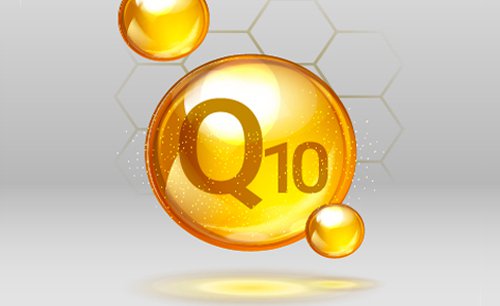- Empty cart.
- Continue Shopping
The Importance of Coenzyme Q10 for Cellular Energy

Coenzyme Q10 (CoQ10), also known as ubiquinone, is a naturally occurring antioxidant that plays a pivotal role in cellular energy production. While it’s a component that our bodies produce naturally, its levels can decline due to various factors such as aging, certain medications, and medical conditions.
The Role of CoQ10 in Cellular Energy Production
Mitochondrial Function
CoQ10 is primarily found in the mitochondria, the “powerhouses” of cells where energy is produced. It is a crucial part of the electron transport chain, facilitating the conversion of nutrients into adenosine triphosphate (ATP), the cell’s primary energy currency.
Antioxidant Properties
Beyond its role in energy production, CoQ10 also serves as an antioxidant, neutralizing harmful free radicals that can damage cells and contribute to aging and diseases.
Supporting Other Cellular Functions
CoQ10 is not just limited to energy production; it also aids in other cellular functions such as cell growth and maintenance.
Health Implications
Cardiovascular Health
CoQ10 has been studied for its potential benefits in cardiovascular health. It helps maintain the elasticity of blood vessels and has been used as a supplemental treatment for conditions like heart failure.
Neurological Health
There’s emerging evidence that CoQ10 may have neuroprotective properties, potentially beneficial in conditions like Parkinson’s disease and migraines.
Athletic Performance
CoQ10 can improve physical performance by optimizing cellular energy production, making it a popular supplement among athletes.
Dietary Sources and Supplementation
Foods
CoQ10 is naturally found in foods like meat, fish, and whole grains. However, the amounts in food are generally not sufficient to significantly boost CoQ10 levels.
Supplements
CoQ10 supplements are widely available and can be an effective way to increase CoQ10 levels. However, it’s essential to consult a healthcare provider before starting any supplementation, especially for those on medications or with existing health conditions.
Challenges and Considerations
Bioavailability
Not all CoQ10 supplements have the same bioavailability, meaning the body may not efficiently absorb them. Look for supplements that contain CoQ10 in its ubiquinol form for better absorption.
Drug Interactions
CoQ10 can interact with certain medications like blood thinners and antihypertensive drugs. Always consult a healthcare provider before starting supplementation.
Cost
High-quality CoQ10 supplements can be expensive, which may be a barrier for some individuals.
Conclusion
Coenzyme Q10 is a vital component in cellular energy production, with implications that extend to various aspects of health, including cardiovascular and neurological well-being. While it’s naturally present in our bodies and certain foods, supplementation may be beneficial in specific cases. However, challenges like bioavailability and potential drug interactions make it essential to approach CoQ10 supplementation with caution and under medical guidance. By understanding the role and importance of CoQ10, you can make informed decisions to optimize your cellular energy levels and overall health.








